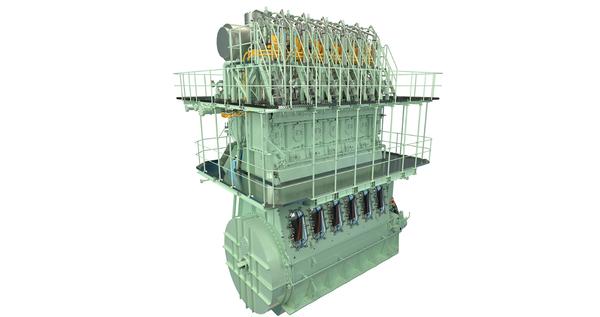Japan pushes for carbon levy at the IMO to reward zero-emission first movers
Ahead of next week’s IMO working group meeting, Japan has proposed a feebate mechanism that rewards owners of zero-emission ships and taxes those with vessels running on carbon-emitting fuels.
 PHOTO: Concept design of NYK's ammonia ready LNG vessel. NYK
PHOTO: Concept design of NYK's ammonia ready LNG vessel. NYK
The major shipping nation argues that in order to propel demand for carbon-neutral fuels, it is necessary to provide incentives to first movers. This could break down technical and economic barriers to greater adoption, it says.
Demand for zero-emission vessels (ZEV) is expected to surge in the latter half of this decade as supply and vessel technologies mature and as carbon-neutral fuels become more widely available.
To speed up the transition in its initial stage, first movers should be incentivised, Japan says in a proposal to the International Maritime Organisation’s (IMO) Intersessional Working Group on Reduction of GHG Emissions from Ships.
The working group will meet next week to discuss market-based measures and other greenhouse gas (GHG) reduction measures. It will consider a proposal to set up an International Maritime Research Fund (IMRB), which Japan says could be helpful to acquire knowledge on how to manage and oversee funds generated through market-based measures.
To curb carbon emissions from shipping, Japan proposes an incentive scheme based on a feebate mechanism. The scheme taxes those vessels using conventional oil-based fuels, and rewards owners of ZEVs.
A portion of the revenue generated through these taxes could be offered as rebates on carbon-neutral fuels, thus compensating the price gap between conventional and carbon-neutral fuels.
Japan favours a carbon levy system over a cap-and-trade system, while underlining that it thinks both options could kick-start investments in zero-emission vessels.
A major flaw in a cap-and-trade system is its price volatility and lack of predictability, which can complicate investment decisions for shipping firms.
It argues for a feebate system that would be set by the IMO and periodically reviewed and adjusted.
Several Japanese shipping companies have poured investments into zero-emission vessels. Kawasaki Kisen Kaisha (K Line) aims to have zero-emission vessels in operation by the end of the decade. Mitsui O.S.K. Lines (MOL) has made a lofty goal of putting 110 zero-emission vessels on the water by 2035.
Nippon Yusen Kabushiki Kaisha (NYK Line) is working to develop electric offshore vessels for the power industry, and to develop ammonia-ready LNG-powered vessels. Its subsidiary NYK Bulkship has already taken delivery of three dual-fuel chemical tankers that can run on methanol when it becomes more widely available.
All three of these shipping conglomerates have set net-zero emission targets for 2050.
Japan’s government has embraced ammonia as a future fuel. Last year, it announced ambitious plans to increase ammonia demand from shipping and the power sector to 30 million mt/year by 2050, from a current 1 million mt/year.
By including shipping in its net-zero carbon target for 2050, it has put pressure on its major shipping firms, bunker industry and fuel producers to fall in line.






